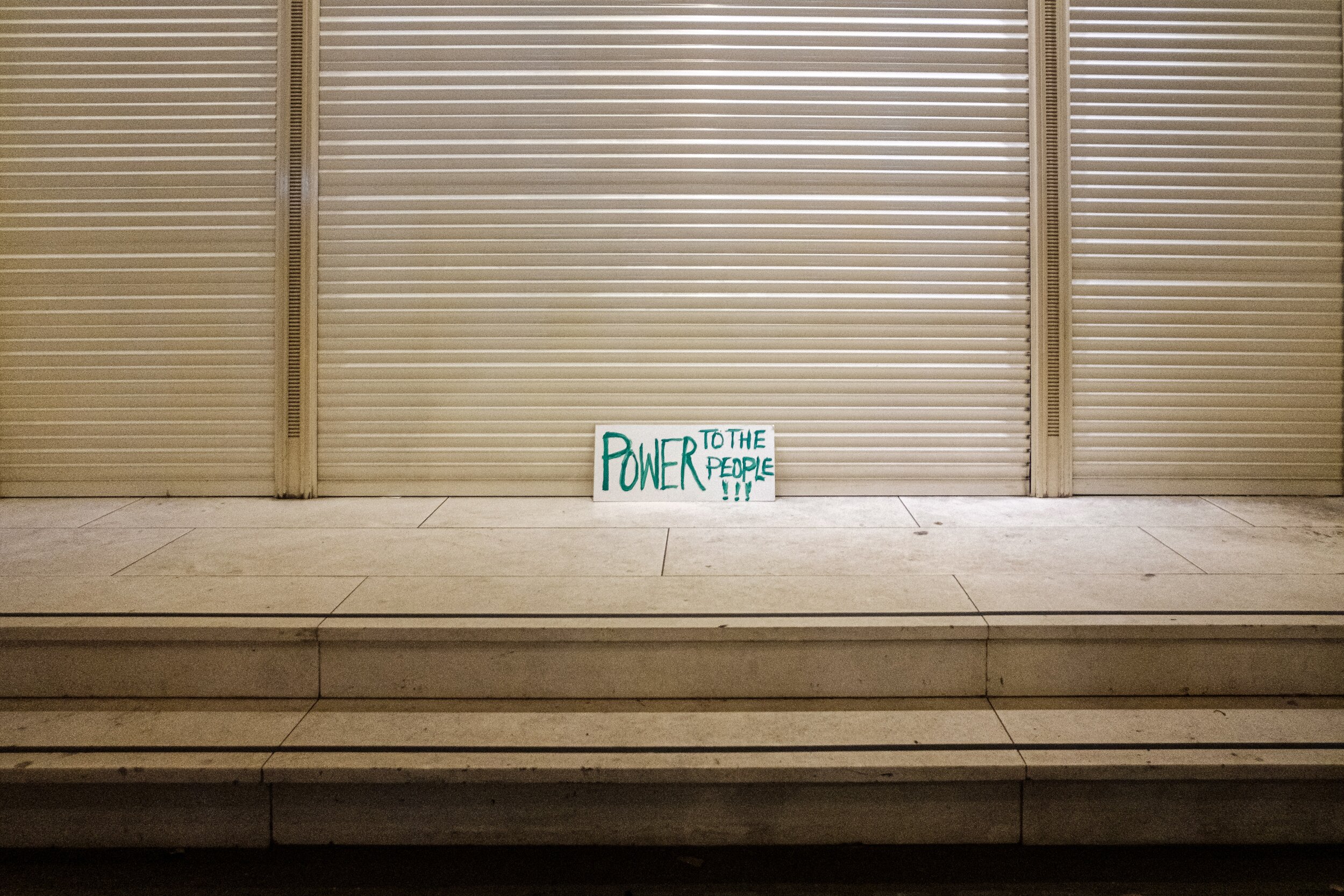Alternative Editorial: Anthea Lawson on how activism is vital - so we should understand better why we do it
Over the next several weeks, we’re going to be running a column from each of the authors from Perspectiva Press - the new publishing arm of the “urgent, 100-year soul-tank” called Perspectiva (our archive here).
(A/UK’s founder and co-initiator, Indra Adnan, has her new book The Politics of Waking Up: Power And Possibility In The Fractal Age (buy here) as one of the PPress titles. POWU is a full development of much of what you’ve read on this site over the last few years, and will be fully launched later this month.)
There’s a strong connection between each of the books, within the context of Perspectiva. They share a concern for how the major crises of our time - environmental, technological, political and economic - are made worse by our lack of inner development, our insufficient mastery over our responses. And could be made better, if we more deeply understood how “systems, souls and society” should link together.
So we are delighted to kick this series off with a piece from Anthea Lawson. Her PPress title is The Entangled Activist: Learning to recognise the master’s tools (buy here).
This original piece below lays out her argument with wonderful concision. Indeed, it’s not enough just to “shake your fist at the bastards”. What, then, might a wise activism look like?
Anthea Lawson on the entanglements of activism
Whether or not you consider yourself an activist, you’re probably noticing activism more than you used to. At times when it is more obvious, to more people, that the old rules are not working, increasing numbers of people turn to activism, whether on the streets or using their keyboards.
What do those words ‘activism’ and ‘activist’ mean, and why does it matter?
Regular readers of the Alternative Editorial might assume we are talking about efforts to turn the world towards justice, equality, peace and ecological sanity - though of course the word is not owned by those who work for these goals.
Populist and far right movements expressing very different values are also doing ‘activism’. In the corporate world an ‘activist’ investor buys a stake in a company in order to pressure it, from the inside, to become more profitable.
In the widest sense, we’d say that being an activist is being pro-active to try to create change, and we’ll come back to that later. But the reactions that activism provokes make it a loaded and polarising term. It has martial origins: the Swedish ‘activists’ who tried to pressure their country to join the First World War1.
The identity of being an activist still gets worn as armour, including by people working for peace and justice. They behave accordingly, comfortable with the idea of campaigning as combat. This reinforces a certain idea of what activism is. It can exclude people for whom the word ‘activist’ feels too sharp, aggressive or confrontational, even though there are many ways of doing activism.
It can exclude, too, the people who would like to do something to make the world better but hesitate to begin, because they feel allergic to the very idea of being an activist. In their minds it carries an uncomfortable image with which they do not identify.
Photo by Ehimetalor Akhere Unuabona on Unsplash
Shots of protesters in the streets provoke a negative reaction in the majority of people, concluded a 2016 study commissioned by climate campaigners seeking guidance on the most effective images to use with the public.
Some of this reactivity may be inevitable. Whenever activists are in action, whenever somebody speaking as an activist speaks, a line is drawn. I hesitate to call it a ‘frontline’, because that invokes precisely the kind of war metaphor that many people doing activism in the service of peace and justice would prefer to avoid.
Yet a line of sorts is created as soon as somebody protests. And along that line, a polarisation occurs.
When protesters are engaged in activities that we personally would not do, whether it is sitting in the road, pulling down statues or naming uncomfortable truths, we see them as separate to us. They take on, in the eyes of whoever is observing, the mantle of ‘activist’.
In that moment of recognising that we are not doing what they are doing, we feel confirmed in our identity as ‘not-activists’. In that moment, we have lost (albeit only temporarily) our agency.
And across this line, the psychological projections fly. ‘Not-activists’ are projecting their own discomfort onto the activists - about what activists are saying, their own sense of implication and guilt, their powerlessness, and perhaps their insecurity about not knowing enough about the issue.
The activists, meanwhile, are projecting onto the ‘not-activists’, via their righteousness and disgust, what they cannot bear in themselves - including their own implication in the problem. Both are using the other to make themselves feel better, and the polarity is reinforced.
The polarising effects that separate protesters from everyone else are reinforced by the media. This isn’t just when protest is reported negatively by the billionaire-owned press, as part of the painting of ecological or social care as a culture-war or values choice.
‘Activists’ as a category are useful, the NYU journalism professor Jay Rosen noted on Twitter recently, because journalists need to keep distance between themselves and what they report on. If they were to write ‘we need governments to act faster on the climate crisis’ it would be an opinion piece, not a news report.
The journalistic formulation ‘activists call on government to act’ maintains the necessary objectivity of reporting, but it simultaneously reinforces the idea that concern about the climate is a minority pursuit; that it is done only by ‘activists’.
This does not reflect public opinion: the majority of us favour much stronger action. More than two thirds of the public in Britain want to see the UK as world leader on climate change, according to a YouGov poll last October. We can’t continue this split between ‘activists’ and the rest of us, when the climate stakes are so high.
So these powerful questions of how we might identify as an activist (or not) overwhelm and obscure other ways of looking at what activism can be. If activism is trying to make things better, then many people are involved - in many public and private spheres, both within and outside of their day jobs.
If activism is a mindset - that the world can be improved, on whatever scale, by anyone choosing to use their agency - then it is something open, potentially, to everyone.
Activism is a tactic of speaking up about what matters to us. If so, then it is not only those who are in the streets, getting in the way, or who are able-bodied and can turn up to the place where the confrontation is happening, who are being activists.
It is not only those who are patiently collecting signatures, knocking on doors, writing emails and standing up at public meetings, explaining the problem over and over again.
Activism rests with the people who are willing to make themselves uncomfortable and don’t mind making other people uncomfortable. It is the ones who initiate difficult conversations in public spaces, who don’t let things slide: in the pub, at their workplace, on social media, at the family table.
‘Activism is the rent I pay for living on the planet,’ said Alice Walker. It’s looking like it might be the rent we all need to pay for a habitable and just planet. Whether we call it activism or not.
Anthea Lawson’s The Entangled Activist: Learning to recognise the master’s tools (buy here) is available on Perspectiva Press.
Photo by Ehimetalor Akhere Unuabona on Unsplash




